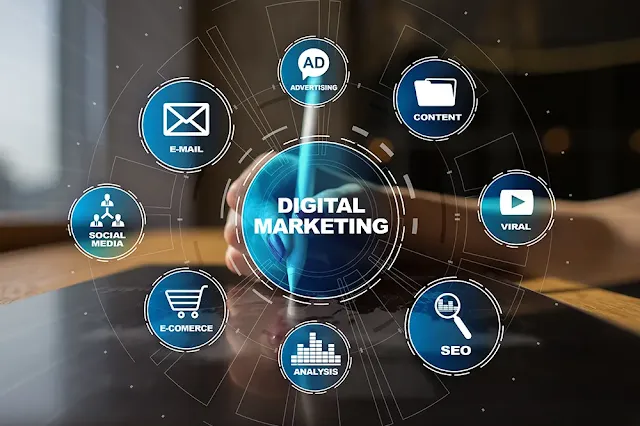Introduction:
In the dynamic and ever-evolving realm of business, staying relevant and competitive requires adapting to the latest trends and technologies. One such transformative force that has revolutionized the way businesses connect with their audience is digital marketing. In an era where the internet plays a central role in people's lives, digital marketing has emerged as a crucial tool for organizations to reach, engage, and convert their target audience. This article explores the importance of digital marketing and the myriad ways it contributes to the success of modern businesses.
- 1.Global Reach and Accessibility:
One of the primary advantages of digital marketing is its ability to break down geographical barriers. Unlike traditional forms of marketing, which are often limited to local or regional reach, digital marketing enables businesses to connect with a global audience. Through various online channels such as social media, search engines, and email, businesses can promote their products or services to a vast and diverse audience, expanding their reach beyond what was once thought possible.
- 2.Cost-Effectiveness:
Digital marketing provides a cost-effective alternative to traditional advertising methods. With tools like social media advertising, pay-per-click (PPC) campaigns, and email marketing, businesses can target specific demographics and measure the effectiveness of their campaigns in real-time. This not only allows for better budget control but also ensures that resources are allocated efficiently, maximizing the return on investment (ROI).
- 3.Data-Driven Decision Making:
One of the standout features of digital marketing is the wealth of data it generates. Every click, like, share, and conversion is tracked and can be analyzed to gain valuable insights into consumer behavior. This data-driven approach empowers businesses to make informed decisions, refine their strategies, and tailor their marketing efforts to the preferences and needs of their target audience. Such insights are invaluable in creating personalized and relevant content that resonates with customers.
- 4.Targeted Marketing:
Digital marketing allows businesses to target specific audiences with precision. Through tools like Google Ads, businesses can display their ads to users who are actively searching for relevant products or services. Social media platforms enable highly targeted advertising based on demographics, interests, and online behavior. This level of precision ensures that marketing messages are delivered to the most relevant audience, increasing the likelihood of engagement and conversion.
- 5.Engagement and Interactivity:
Unlike traditional marketing channels that often involve a one-way communication flow, digital marketing fosters engagement and interactivity. Social media platforms, in particular, provide a space for businesses to engage with their audience through comments, likes, and shares. This interaction builds a sense of community and trust, crucial factors in establishing a strong brand presence in the digital landscape.
- 6.Adaptability and Flexibility:
The digital landscape is constantly evolving, and digital marketing allows businesses to adapt quickly to changes in consumer behavior and market trends. Whether it's adjusting advertising strategies, optimizing website content, or embracing emerging technologies, digital marketing provides the flexibility needed to stay ahead in a fast-paced business environment.
Conclusion:
In conclusion, the importance of digital marketing in the contemporary business landscape cannot be overstated. From global reach and cost-effectiveness to data-driven decision-making and targeted marketing, the advantages it offers are diverse and impactful. As businesses navigate the digital age, embracing and leveraging digital marketing strategies is not just beneficial but essential for staying competitive and fostering sustainable growth.



0 Comments